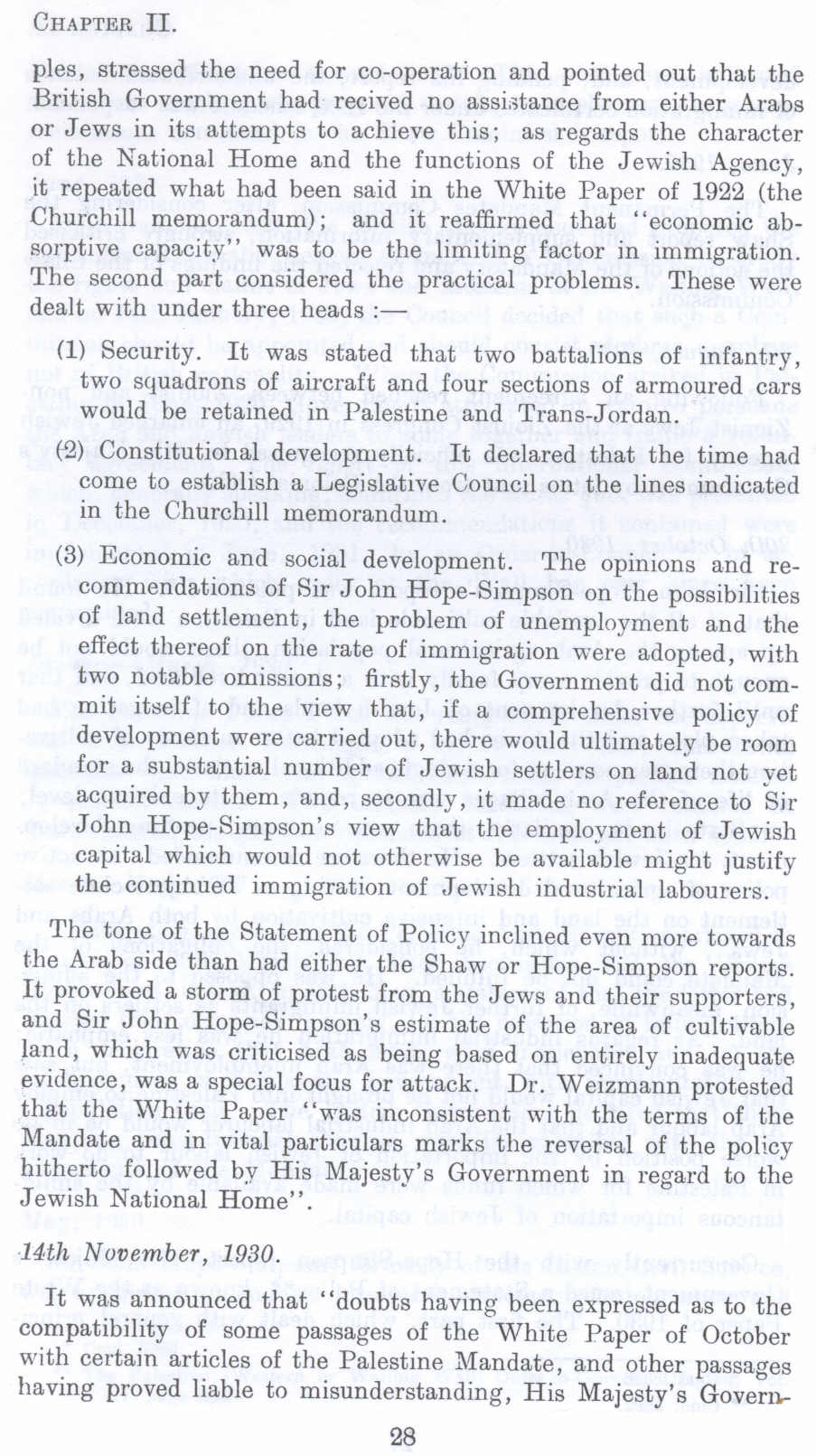| Prev | Next |  |
| Prev | Next |
| PalestineRemembered | About Us | Oral History | العربية | |
| Pictures | Zionist FAQs | Haavara | Maps | |
| Search |
| Camps |
| Districts |
| Acre |
| Baysan |
| Beersheba |
| Bethlehem |
| Gaza |
| Haifa |
| Hebron |
| Jaffa |
| Jericho |
| Jerusalem |
| Jinin |
| Nablus |
| Nazareth |
| Ramallah |
| al-Ramla |
| Safad |
| Tiberias |
| Tulkarm |
| Donate |
| Contact |
| Profile |
| Videos |
British Mandate: A Survey of Palestine: Historical Summary, 1930-1. Revival of Arab antagonism to the Jewish National Home. The White paper of 1930 Volume I - Page 28 |
Disclaimer
The above documents, article, interviews, movies, podcasts, or stories reflects solely the research and opinions of its authors. PalestineRemembered.com makes its best effort to validate its contents.


Post Your Comment
*It should be NOTED that your email address won't be shared, and all communications between members will be routed via the website's mail server.
pies, stressed the need for co-operation and pointed out that the British Government had recived no assistance from either Arabs or Jews in its attempts to achieve this; as regards the character of the National Home and the functions of the Jewish Agency, it repeated what had been said in the White Paper of 1922 (the Churchill memorandum); and it reaffirmed that "economic absorptive capacity" was to be the limiting factor in immigration. The second part considered the practical problems. These were dealt with under three beads :-
(1) Security. It was stated that two battalions of infantry, two squadrons of aircraft and four sections of armoured cars would be retained in Palestine and Trans-Jordan.
(2) Constitutional development. It declared that the time bad come to establish a Legislative Council on the lines indicated in the Churchill memorandum.
(3) Economic and social development. The opinions and recommendations of Sir John Hope-Simpson on the possibilities of land settlement, the problem of unemployment and the effect thereof on the rate of immigration were adopted, with two notable omissions; firstly, the Government did not commit itself to the view that, if a comprehensive policy of development were carried out, there would ultimately be room for a substantial number of Jewish settlers on land not vet acquired by them, and, secondly, it made no reference to Sir John Hope-Simpson's view that the employment of Jewish capital which would not otherwise be available might justify the continued immigration of Jewish industrial labourers.
The tone of the Statement of Policy inclined even more towards the Arab side than had either the Shaw or Hope-Simpson reports. It provoked a storm of protest from the Jews and their supporters, and Sir John Hope-Simpson's estimate of the area of cultivable land, which was criticized as being based on entirely inadequate evidence, was a special focus for attack. Dr. Weizmann protested that the White Paper "was inconsistent with the terms of the Mandate and in vital particulars marks the reversal of the policy hitherto followed by His Majesty's Government in regard to the Jewish National Home".
14th November, 1930.
It was announced that "doubts having been expressed as to the compatibility of some passages of the White Paper of October with certain articles of the Palestine Mandate, and other passages having proved liable to misunderstanding, His Majesty's Govern-
Page 28